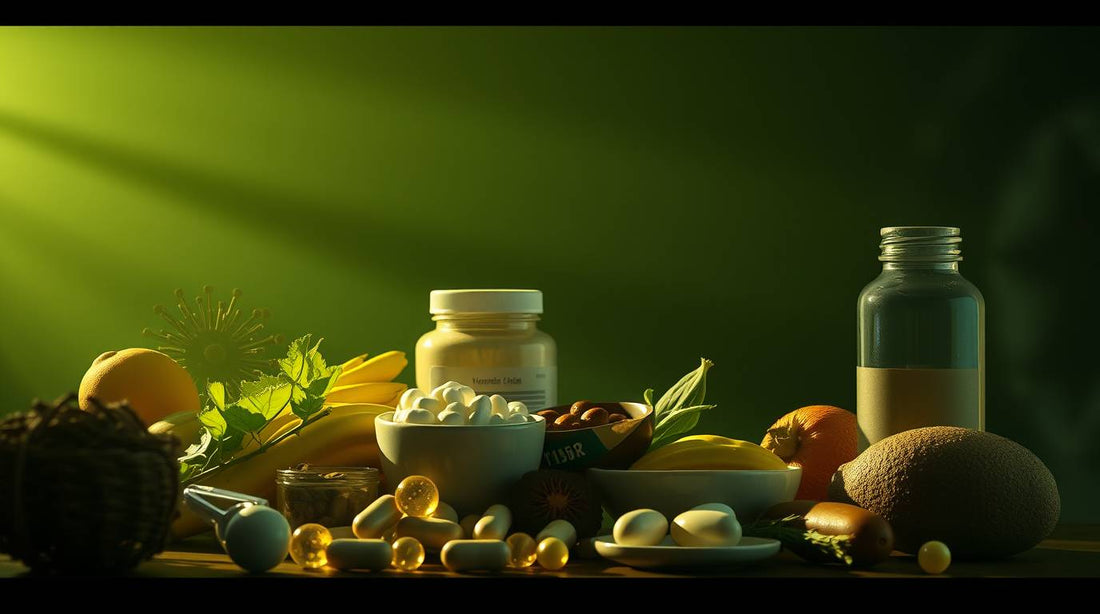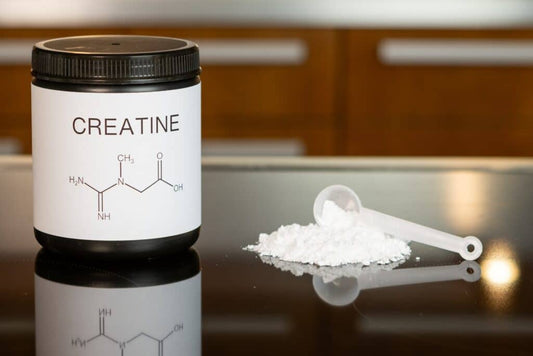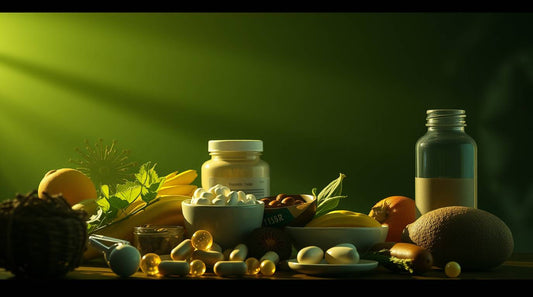Deciphering Immunotropics: Looking at How Supplements Like Olivium Support Long COVID Recovery

Long COVID has become a persistent shadow for millions, leaving behind a trail of debilitating symptoms—fatigue that lingers like a heavy fog, brain fog that muddles even simple decisions, inflammation that aches in the joints, and an immune system that feels perpetually off-balance.
As conventional treatments struggle to keep pace with this complex condition, attention has turned to alternative approaches, including immunotropic supplements. These formulas, engineered to modulate immune function, are gaining traction not as cures but as potential allies in the fight for recovery. So, what exactly are they, and how might they fit into the Long COVID puzzle?
What Sets Immunotropics Apart?
The term “immunotropic” might sound like jargon, but it’s a precise label for supplements designed to do more than just prop up the immune system—they aim to refine it. Unlike the broad-spectrum immune boosters lining drugstore shelves, immunotropics target specific mechanisms: regulating overactive immune responses, enhancing resistance to lingering infections, and supporting the body’s recovery from post-viral syndromes like Long COVID. This isn’t about a temporary lift; it’s about recalibrating a system thrown into disarray.
Research highlights their potential to address the core complaints of Long COVID sufferers. Fatigue, for instance, isn’t just a matter of needing more rest—it’s often tied to mitochondrial dysfunction, where cells struggle to produce energy. Inflammation, meanwhile, can persist long after the virus is gone, driving pain and exhaustion. Immunotropics step in by interacting with cellular pathways, reducing oxidative stress, and supporting the adaptive immune response that helps the body adjust to ongoing challenges.
Studies suggest this approach can ease tiredness, sharpen cognition, and temper inflammation, offering a lifeline to those stuck in the aftermath of infection.
The Research Angle: A European Study
To ground this in evidence, consider a European study that examined the effects of a food supplement on Long COVID patients struggling with persistent fatigue. Researchers, led by Z. Naureen and colleagues recruited 20 individuals who had recovered from COVID-19 but were experiencing post-COVID syndrome characterized by chronic tiredness. They tested a blend of hydroxytyrosol (from olive polyphenols), acetyl L-carnitine, and vitamins B, C, and D over 15 days. The goal was to assess whether this targeted nutritional approach could improve their perceived energy and fatigue levels. The results, published in the European Review for Medical and Pharmacological Sciences in 2021, showed that after 15 days, self-reported energy levels doubled, increasing by 123%, while tiredness decreased by 51%. Tension levels also dropped by 48%, suggesting a notable improvement in the participants’ overall energetic and psychological status.
These findings aren’t isolated—they echo broader research into how specific nutrients can combat post-viral fatigue syndromes. Oxidative stress, a major player in Long COVID’s persistence, gets tamped down by antioxidants, while inflammation—a silent driver of discomfort—meets its match in bioactive compounds.
Olivium, which is a supplement inspired by such studies, builds on this model with a mix of eight ingredients aimed at immune and cognitive support. It’s not the only player in this space, but it exemplifies a shift toward precision nutrition tailored to complex recovery needs.
Breaking Down the Components
So, what’s in these immunotropic formulas? The ingredients aren’t random—they’re chosen for their roles in addressing Long COVID’s multifaceted toll. Take olive leaf extract: rich in antioxidants, it’s been studied for its antiviral properties and ability to modulate immune responses. It’s not just about fighting off viruses; it also supports cardiovascular health, which can take a hit in post-viral states.
Then there’s acetyl-L-carnitine, an amino acid that bolsters mitochondrial function. For anyone who’s felt their energy reserves vanish, this could be a critical piece, helping cells churn out the fuel needed to get through the day.
Vitamins play a starring role too. Vitamin B12, often deficient in those with chronic fatigue, supports nerve function and red blood cell production—key to combating mental fog and weakness. Vitamin D, linked to immune regulation, steps in to reduce inflammation and shore up overall resilience, especially crucial when levels dip after prolonged illness. Folate (B9) aids cellular repair and energy metabolism, while vitamin C, a powerhouse antioxidant, boosts tissue repair and neurotransmitter synthesis for better focus.
Rounding out the list, B1 (thiamine) and B6 tackle neurological symptoms and mood, countering the brain-drain effect of Long COVID.
The power lies in the combination. Individually, these nutrients have merit, but together, they create a synergy that targets the overlapping issues of fatigue, inflammation, and cognitive decline. It’s less about flooding the body with supplements and more about delivering what’s needed, where it’s needed.
How They Fit into Long COVID Recovery
Long COVID isn’t a single problem—it’s a constellation of them. Chronic tiredness saps motivation, muscle weakness limits movement, and mental cloudiness turns work into a slog. Traditional medicine often struggles to address this sprawl of symptoms, leaving gaps that immunotropics aim to fill. By reducing systemic inflammation, they ease the physical toll—less achiness, more mobility. By supporting mitochondrial health, they boost energy at its source, not just masking exhaustion with a caffeine-like jolt. And by enhancing neurological function, they chip away at the fog that clouds thinking.
Olivium, for example, as a supplement for Long Covid Relief & Brain Fog Support aligns with these goals. Its formula reflects the European study’s insights, and user feedback often mirrors the data—improved vitality and sharper minds within a couple of weeks. But it’s not alone; it’s part of a wider trend toward supplements that tackle the root causes of post-viral decline. The key seems to be consistency—regular use ensures a steady supply of nutrients to sustain the gains.
Beyond the Hype: What to Consider
Immunotropics sound promising, but they’re not without caveats. They’re not drugs, so regulation is lighter, and quality can vary. Clinical backing matters—formulas like Olivium, which is a Long Haul COVID supplement, carries a Health Canada NPN, signaling they’ve been vetted for safety and efficacy, but not every option does. Sourcing counts too: non-GMO, vegan-friendly blends made under strict standards (say, in Canada) offer reassurance. And practically speaking, cost and accessibility factor in—some brands sweeten the deal with free shipping over $75, making long-term use more feasible.
Individual results aren’t guaranteed either. The European study’s 15-day timeline is a benchmark, but bodies differ—what works quickly for one might take longer for another. This isn’t a replacement for medical care; it’s a complement, a nutritional boost to pair with rest, therapy, or whatever else a doctor advises.
The Bigger Picture: Why It’s Worth Exploring
Long COVID has forced a rethink of recovery, and immunotropics are carving out a niche in that conversation. They’re not about overhyped miracles—they’re about addressing the specific, lingering damage of a virus that doesn’t play by the rules.
Whether it’s a natural immune booster to help against fatigue or another evidence-based formula, the appeal is in their focus: targeting inflammation, energy deficits, and immune dysfunction with precision. For researchers, it’s a field ripe for more study; for sufferers, it’s a practical option to test.
The science is still unfolding, but the early data—and the experiences of those trying these supplements—suggest they’re more than a fad. They’re a thread in the tapestry of Long COVID solutions, offering not a full picture but a piece worth examining. In a condition defined by uncertainty, that’s a step forward.



